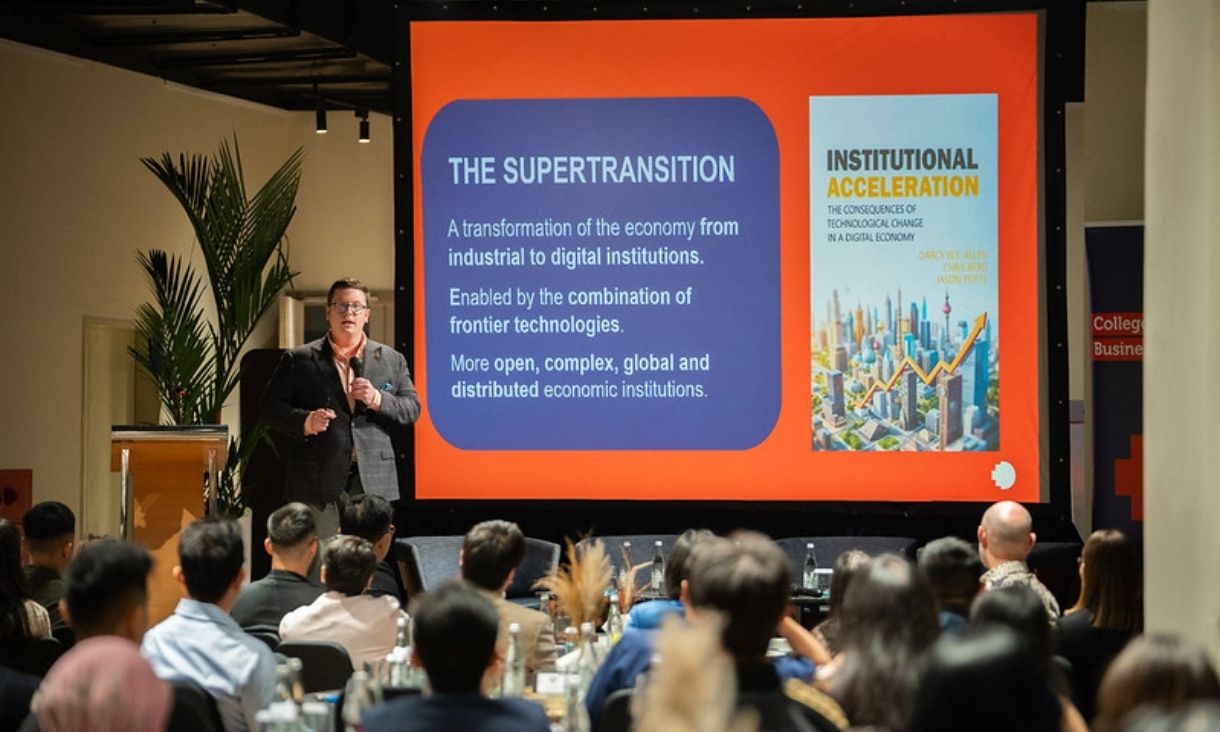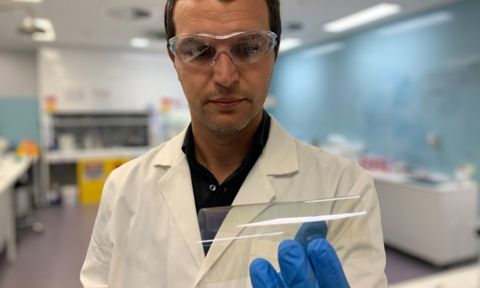“We are on the cusp of a technology-driven ‘supertransition’” - RMIT expert says deep economic change is occurring with profound consequences for business
RMIT economist Dr. Darcy Allen says the world is in an economic ‘supertransition’: profound economic change driven by the simultaneous combination of technologies.
“Inkable” nanomaterial promises big benefits for bendable electronics
An international team of scientists is developing an inkable nanomaterial that they say could one day become a spray-on electronic component for ultra-thin, lightweight and bendable displays and devices.
‘Spintronic’ research promises faster, more efficient computing
Researchers have discovered new magnetic properties within atomically thin structures, with exciting potential for the emerging field of “spintronics”.
‘Digital twins’ can help monitor infrastructure and save us billions
Creating a digital twin of infrastructure or services makes them easier to monitor and operate safely.



